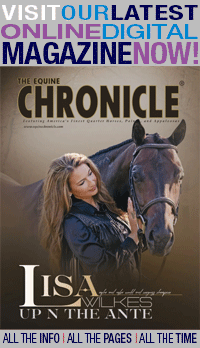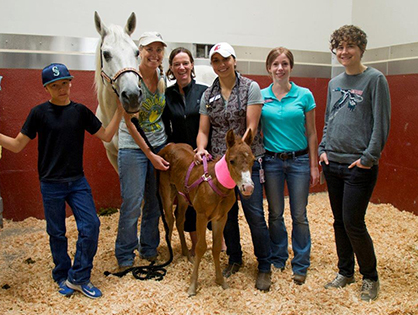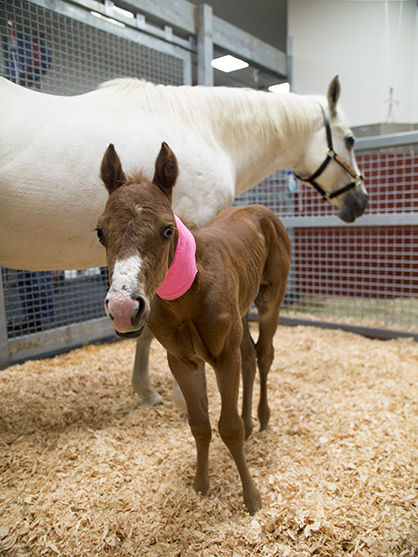High Flying Filly: Sick 2-Day-Old Foal Flown by Chartered Aircraft to Receive Emergency Care
By: Brittany Bevis
On May 24th, a very sick filly was flown by chartered aircraft from Walla Walla, Washington to Pullman, Washington, a distance of 72 miles by air, to receive immediate veterinary care from Washington State University’s College of Veterinary Medicine. The foal, nicknamed “Patsy,” had been born just one day earlier but wasn’t nursing and had quickly taken a turn for the worse.
Charlie Powell, Public Information Officer for the WSU College of Veterinary Medicine, explains why it was essential that Patsy be transported to the facility’s biosecure equine ICU immediately.
“She was two days old, hadn’t nursed, and was failing to thrive,” he says. “She was clinically dehydrated and losing strength. She’d had no colostrum, so she was susceptible to secondary infections that could become life threatening.” Besides Patsy’s inability to nurse, one of the main concerns for vets was that she hadn’t received any colostrum and, as a result, none of her mother’s crucial antibodies.
The placenta of a horse consists of multiple layers, which prevent the transfer of antibodies from the mare to the fetus. Therefore, foals are essentially born without any immune protection. Nature’s solution to this problem is colostrum, a substance produced by the mammary glands of the mare during the final weeks of pregnancy. Colostrum consists of carbohydrates, fats, electrolytes, proteins, and most importantly, antibodies, which are essential to immune protection.
Typically, newborns stand and nurse within one to two hours after birth, and some studies show the absorption of essential antibodies is greatest within six to eight hours after birth. However, Patsy was born ten days early and wasn’t nursing. “[That was among the reasons] for placing her in our biosecure equine ICU,” Powell says.
For more on the importance of colostrum, click here to read Equine Colostrum: The Elixir of Life For a Newborn Foal, a piece by Dr. Patrick McCue of Colorado State University.
The veterinary staff at WSU worked around the clock to give Patsy the best chance for survival. “Essentially she needed near constant supportive care at all hours,” he says. “This included passing a nasogastric tube into her stomach to bypass her mouth and swallowing reflex if she became too weak and deteriorated further.”
Due to her arrival by plane, Patsy was without her mother for a brief period of time. However, when the two were reunited, mare and foal took to each other right away.
Just a few days ago, on June 10th, the filly, now renamed “Rose,” was well enough to leave the WSU veterinary facility and is headed back home where her owner hopes she will have a bright future as a Barrel Racing prospect.
“We’re grateful for the foal’s strength and ability to come around,” Powell says. “We’re also grateful for her owners’ trust in our personnel, our professional skills, and our world class facilities at Washington State University’s College of Veterinary Medicine. Our goal is to remain available to the public around the clock to provide definitive medical care for their animals.”
For more information about WSU’s College of Veterinary Medicine visit www.vetmed.wsu.edu.












